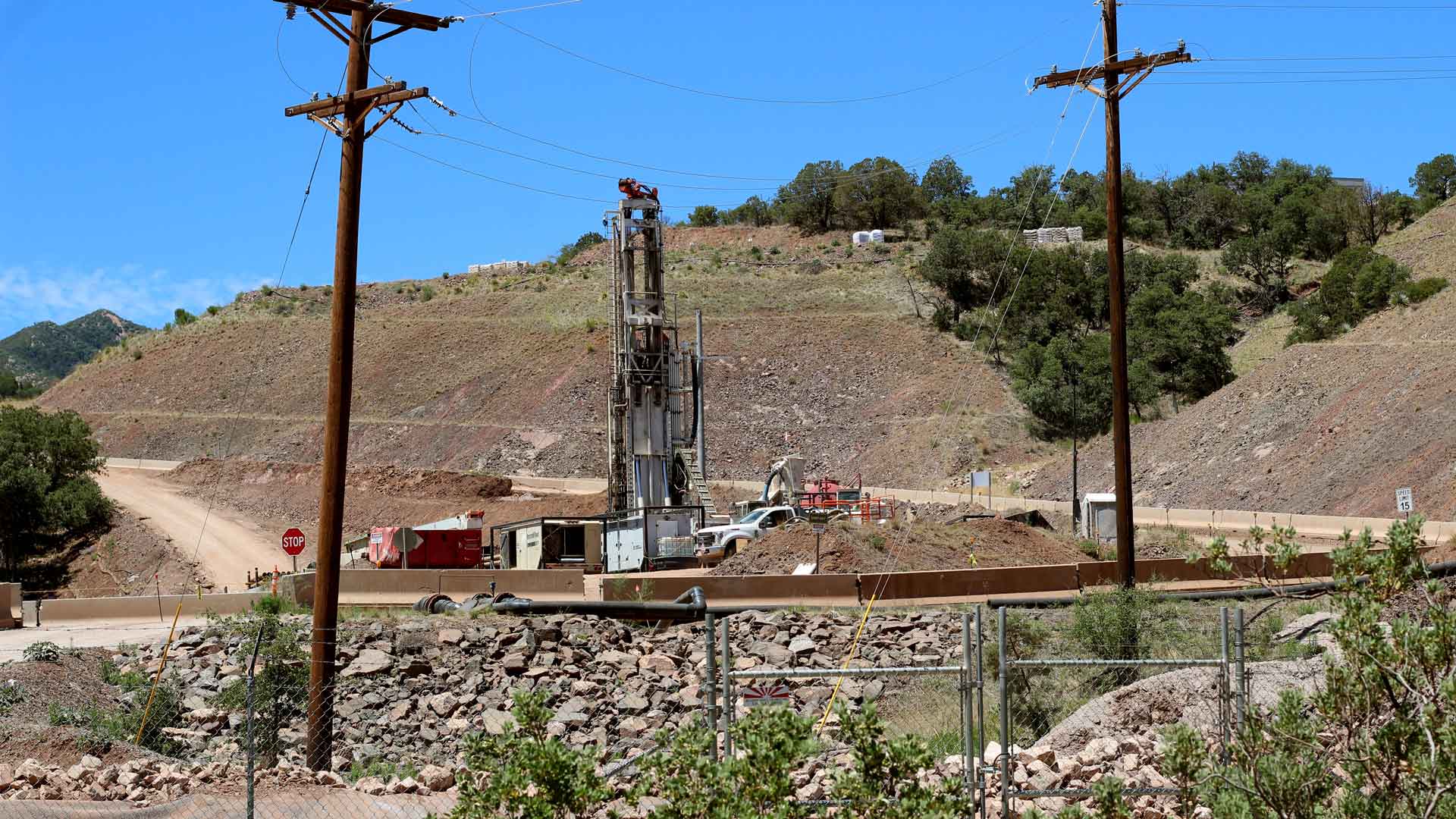 South 32 Hermosa Project in the Patagonia Mountains. The mine development project earned a FAST-41 federal designation which streamlines its permitting process.
South 32 Hermosa Project in the Patagonia Mountains. The mine development project earned a FAST-41 federal designation which streamlines its permitting process.
The Center for Biological Diversity and other environmental groups filed a lawsuit on Tuesday, against the U.S. Forest Service (USFS) for its approval of exploratory mining in the Patagonia Mountains.
The lawsuit filed in the U.S. District Court in Tucson, alleges that the agency failed to analyze the cumulative harm that the mineral exploration projects would have on public lands, the environment, and endangered species and requests that the Court declare the USFS in violation of the National Environmental Policy Act (NEPA).
NEPA requires federal agencies to consider every aspect of environmental impact and requires federal agencies to prepare an environmental impact statement.
The plaintiffs also ask the Court to issue an order that sets aside the agency’s project authorizations.
Last week, the agency authorized the Sunnyside Exploration Drilling Project proposed by the Arizona Standard LLC, a subsidiary of the Canadian metals exploration company, Barksdale Capital Corporation. The program hopes to identify copper, lead, and zinc over the course of seven years, for a future industrial mine.
Days earlier, the Flux Canyon Exploration Drilling Project was separately authorized and looks to operate for one year. Flux Canyon is held by Arizona Minerals, Inc., a Nevada-based corporation held by the Australian mining and metals company, South 32 which also oversees and operates the critical mineral Hermosa Project.
Both the Sunnyside and Flux Canyon sites in the area would construct up to 37 well pads for drilling shafts thousands of feet deep. The lawsuit states the Sunnyside Project threatens to contaminate groundwater and drinking water of nearby communities from wastewater leakage.
“This kind of drilling can actually puncture, deplete and contaminate the groundwater aquifers and that’s another thing that the Forest Service has failed to analyze in their approval of these mining projects,” said southwest conservation advocate for the Center for Biological Diversity, Laiken Jordahl.
The lawsuit also details the combined effects of drilling, construction, human presence, and other around-the-clock interference that was overlooked by the USFS.
Jordahl said the cumulative impact of these projects would significantly impact native wildlife.
“That’s why it’s crucially important to preserve this wildlife corridor to not allow disturbing activities like mineral exploration, that way jaguars and ocelots and other wildlife can continue to migrate between their historic ranges in Arizona and in Mexico,” Jordahl said.
The Patagonia Mountain range is home to over 100 federally threatened, endangered, and sensitive species and contains the headwaters for Sonoita Creek and its tributaries.

By submitting your comments, you hereby give AZPM the right to post your comments and potentially use them in any other form of media operated by this institution.